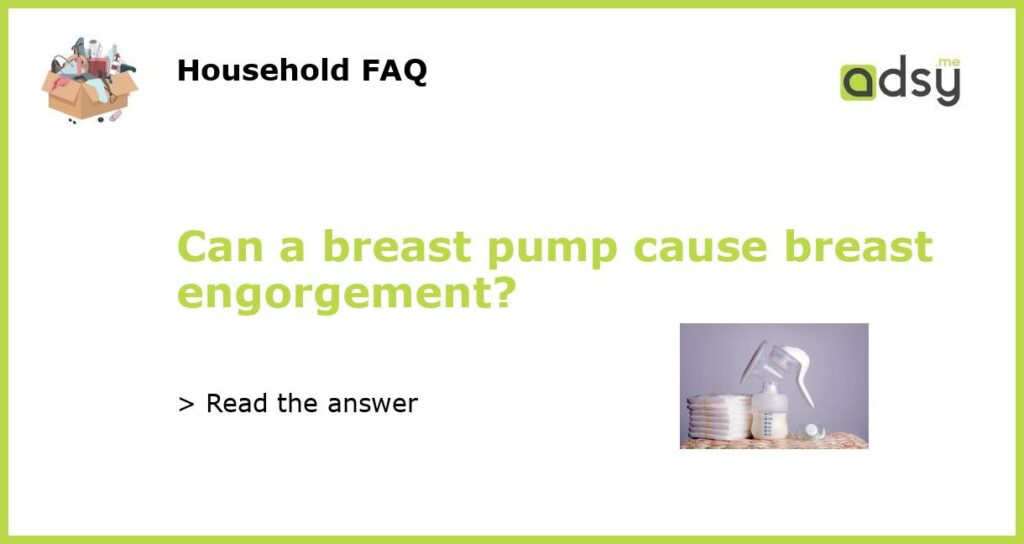What is Breast Engorgement?
Breast engorgement is a common condition faced by many new mothers. It occurs when the breasts become overfilled with milk, causing them to become hard, swollen, and painful. Breast engorgement typically occurs during the first few days after giving birth, but it can also occur at any time during lactation if the baby isn’t feeding well or if the mother is producing too much milk.
What is a Breast Pump?
A breast pump is a device that helps lactating women extract and store their breast milk. It can be used to extract milk for a variety of reasons, such as when the mother is returning to work or for a baby that is unable to breastfeed. Breast pumps come in different types: manual, electric or battery-operated, and hospital-grade. They can be either single or double pumps, which means you can pump both breasts at the same time or one breast at a time.
The Connection Between Breast Pump and Engorgement
While a breast pump is a helpful tool for breastfeeding mothers, it can sometimes be the cause of breast engorgement. Using a breast pump incorrectly can cause milk to build up in the breasts and lead to engorgement. For example, if a mother pumps too much or too often, it can stimulate the breasts to overproduce milk, causing them to become overfilled and painful. Additionally, if the suction on the pump is too high, it can irritate the breast tissue and cause inflammation and swelling.
How to Prevent Breast Engorgement when Pumping
There are several ways to prevent breast engorgement when using a breast pump:
- Use the right size of breast shield, to ensure the pump is correctly positioned on the breast.
- Start with lower suction and gradually increase to your comfort level.
- Pump only until the milk flow slows down, as opposed to pumping until there is no more milk coming out – over-pumping can create more breast milk, leading to engorgement.
- Pump regularly, but not excessively. This way, your body will learn how much milk to produce.
- Hand express a bit of milk if the breast feels engorged before beginning pumping.
When to Seek Medical Advice
In most cases, breast engorgement can be relieved through proper breastfeeding, pumping habits, and home treatments such as cold compresses and massages. However, mothers should seek medical advice if symptoms persist for more than a few days or are accompanied by fever, flu-like symptoms or a lump in the breast.






